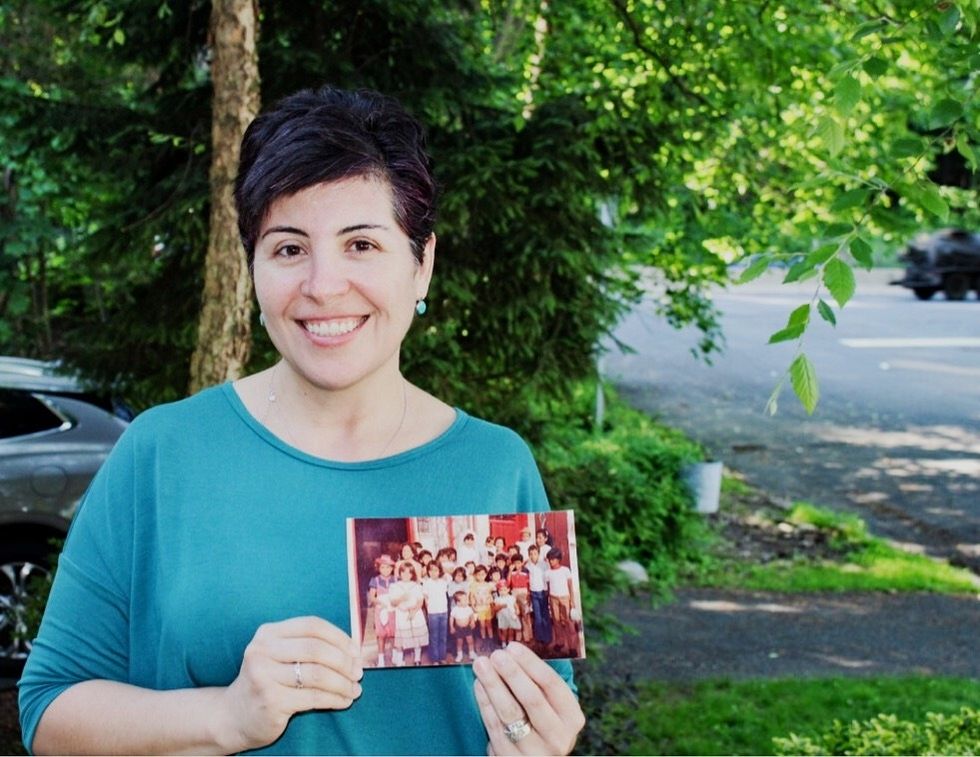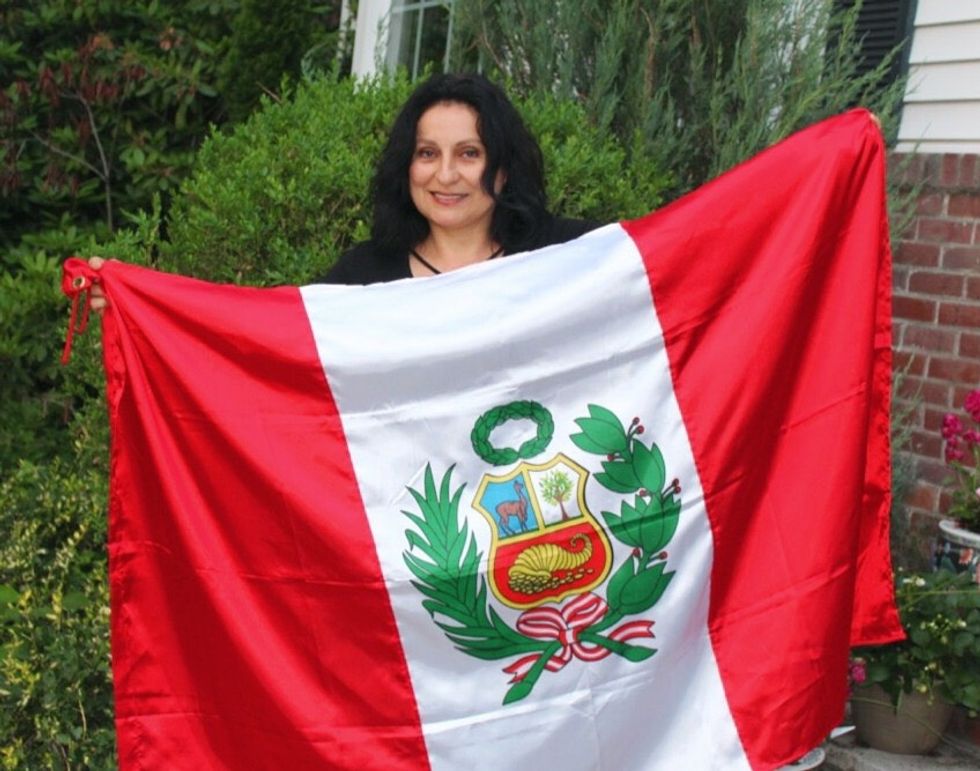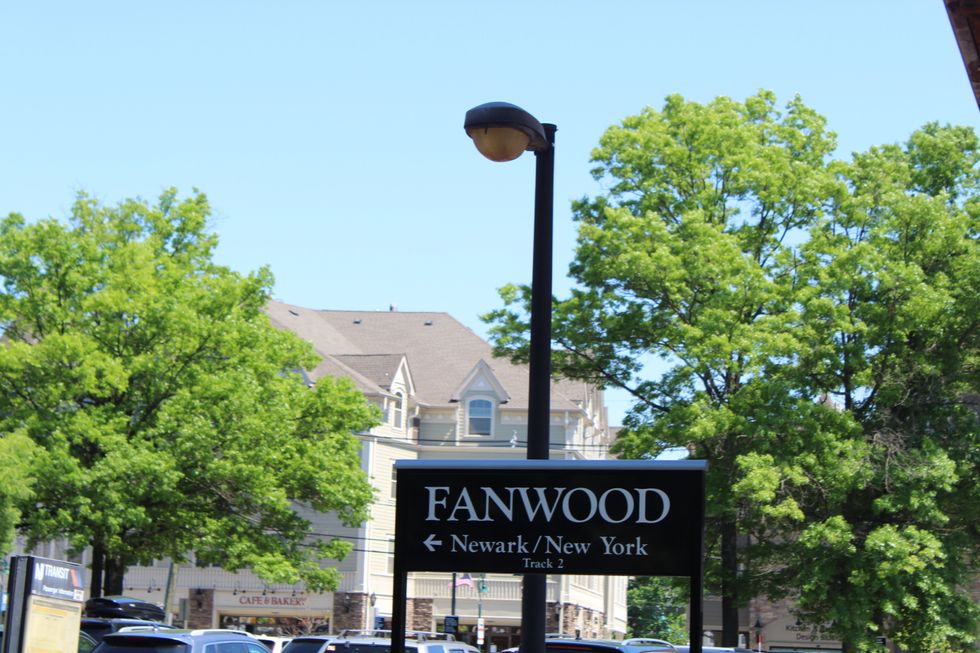We live in a country that is so culturally mixed that we often forget that only a very small percentage of us are actually natives. In 2013, 40 million immigrants were recorded living in the United States with documentation. This being said, the number of illegal immigrants would further swell this statistic. Regardless of motive, immigrants come to the U.S. every day filled with hope, whether they are seeking better opportunities or simply a change of pace from their life back home. The challenge of finding one's place in this vast country is a phenomenon that stands the test of time. This week, you will read about immigrant stories coming to you from New Jersey residents.
Passionate.

Madison Goldberg
"The biggest shock was finding my place. When you're in Puerto Rico you look at the U.S. like one homogenous block. When you get here, and you're in a state staying in a dorm, I didn't care that my roommate was African American. I didn't care about everyone's backgrounds. The U.S. cares about ethnicity, and color, and regions of the country. I was shocked to go to the cafeteria and see the caucasians and the blacks all sitting together. I have a vivid memory of holding my tray and standing and not knowing where to sit I kept going and just found a table to sit at by myself. Even in my Latino group of friends, I felt othered, because I did not understand the experience of being a latina who grew up in the states--I was straight from the island, my english was rough. It was hard to find my place as a Puerto Rican female in such an ethnically diverse area. You get all these messages about your culture. What will you reject and embrace? People end up joining those discourses of segregation, or the people who are working hard against those things so you don't become one of those 'us' vs. 'them' people. You have to make some hard choices there. I didn't know much about racism until I came here. I took a literature course in a class that had all black people and I felt out of place. My first year I felt confused, and the language barrier was painful. I would get headaches from my efforts to listen to the English in my classes. Noises would bother me. I wanted silence because I felt that I did not understand. You feel inadequate. I spoke to my mother a lot on the phone. I needed a lot of pushing and reassurance. Everything that I needed, I had. How could I go back? You can't just give up after your parents do so much for you. I understood my privilege to go to college and be in the dorm, and I didn't want to miss that opportunity and let that go. My parents made that sacrifice. When you think about the people you grew up around, you just want to do right by them. There's an unspoken pressure. I have always been very proud of my parents. They never told me what to do specifically, but the people around you silently expect things of you by their actions."
Marie Concepcion is a Spanish teacher at Scotch Plains-Fanwood High School who first came to the mainland U.S. to attend Rutgers University. The American college experience was already present in her family, as her father and uncles attended American universities. She chose Rutgers due to its close proximity to New York City, where her cousins lived. She graduated with a degree in psychology from the school, originally with goals of going into industrial and corporate psychology. After she realized that big business convolutes the basis of accurate psych, she chose to continue with Spanish literature, which she fell in love with while at Rutgers. She always remained in touch with her Puerto Rican roots, and initially considered becoming a Spanish literature professor, before deciding instead to become a high school teacher due to the more interactive atmosphere of the job. She describes herself as passionate, because she feels lucky for her life, and the opportunities she's been presented with. She loves her job, as it triumphs new cultural identities and helps students understand topics they may have never been exposed to. Regardless of the event, she feels emotions and takes on everything she does with passion.
Resilient.

Madison Goldberg
"I miss my extended family the most. My parents came here in waves. My dad came with me and my sisters, and my mom. Only immediate family came, except for my parents and aunts and uncles. Now with social media, we have reconnected with a few. It is sad that we lost out on the small every day contact that many have with their relatives. We missed out on a lot of experiences together. What I like most about the U.S. is the opportunities. Now that we have connected with my cousins and aunts and uncles, you definitely see that there is a lack of opportunity in Colombia. The opportunities that have been awarded to me are so special. It is the american dream, the same reason why a lot of Americans come to this country. So many people who are not immigrants feel that many immigrants come here to mooch off of the system, take advantage in a negative way of the opportunities, and hat we don't give back to the community. For the most part, and i speak to myself and my family, we are all fully employed and pay our taxes and go to school. People need to know that not everyone is here to mooch off of the system. Immigrants don't want to come here and not be productive members of society. They want to be documented. They want to have better opportunities. No one wants to be here undocumented. People have this feeling that many immigrants just want an easy way out. I work with a lot of undocumented families. None of them want to not be productive, when I speak to them, that is always what they are looking for. They are always trying to properly get their green card. No one is looking to abuse the system. At least no one that I've met. I work with early intervention. I am the service coordination with the families. Most of my caseload are spanish speaking families."
Irene Colinders moved to Brooklyn, NY from Colombia when she was nearly nine years old. She recalls being shocked by the bareness of the trees in the late fall when she arrived, as she had never seen anything like them before. Colinders and her husband decided to move with their two daughters to Scotch Plains because of the quality school district and the town's proximity to New York City. She now works towards helping immigrant families gain documentation and United States citizenship. She describes herself as resilient, as she continues to push through the racism and discrimination she has experienced, and continuously works towards combating the stereotypes of hispanic americans.
Compassionate.

Madison Goldberg
"My best friend in Peru owned a little store where they sold one or two pieces of clothing from other countries. It was summer 1992, and her mother asked if we had any plans. Her cousin was an ambassador in San Francisco. We decided to come with her. We came, and at the time I was an elementary school teacher. The line for visas was very long, and all I had was my Peruvian ID and my Air Force school proof (from where I taught). The line for visa interviews was so long. My friend had everything. I had nothing. The guy who interviewed me was engaged to a Peruvian elementary teacher too. We talked for a while about it, and I explained to him that I was thinking about looking at materials to build a school in Peru. My friend didn't get the visa. At 24, she had been there multiple times and was denied. I got it and my mother was upset that my friend didn't get it. My cousin lived in New Jersey and was married to an American. I went to Miami with my other cousin's husband was friends with Jim. We were all in Disney and he kept talking about how he thought I'd love Jim. I kept reminding him I was engaged. They said that he was a lawyer. To me that wasn't impressive because in Peru lawyers and doctors don't make much money and are not rich. There was my cousin and her husband and then Jim walked in. He shouted "Scott!" And then he shook my hand. The next weekend we all went dancing. We went with my cousin, her husband and some of our Hispanic friends. He told me I was pretty, and we talked for 10 days and really got to know each other. I went back to Peru and realized I wasn't in love with my fiancé. I broke things off with him. I went back and took English classes to get better so I could talk to him on the phone. He wrote me letters for a year and a half. He came to Peru on Christmas Day. By New Year's, he asked for my hand. My mom said I could go live in the US for a bit to see if I liked it because I was leaving everything I knew. We lived in Clark in an apartment. Then I went back to Peru and taught some more. By 1995, I came back to New Jersey, and in August, Jim and I got married. I've been in the United States for 23 years now. People should know that when people come here that not everyone comes illegally. The people who did come illegally are because they didn't have another choice. They wanted a better life and a better life for their kid. Everyone started out as an immigrants so it shouldn't be a big deal. It's a culture shock, but they do it for better opportunities."
Marelly McParland first came to the United States when she was 24 years old. She was young and didn't know what to expect when she left behind everything she ever knew. She continues to persevere through the obstacles presented before her as a hispanic immigrant in America. She has raised three children here, and been a Girl Scout leader for 12 years. She now works at the First Children's School in Fanwood, assisting with children who have cerebral palsy. Some of their parents are immigrants as well and know limited english, something that she is very understanding of given the time that she put into learning english. She describes herself as compassionate, because she simply loves to help people, especially immigrants who encounter the same challenges that she did.

















